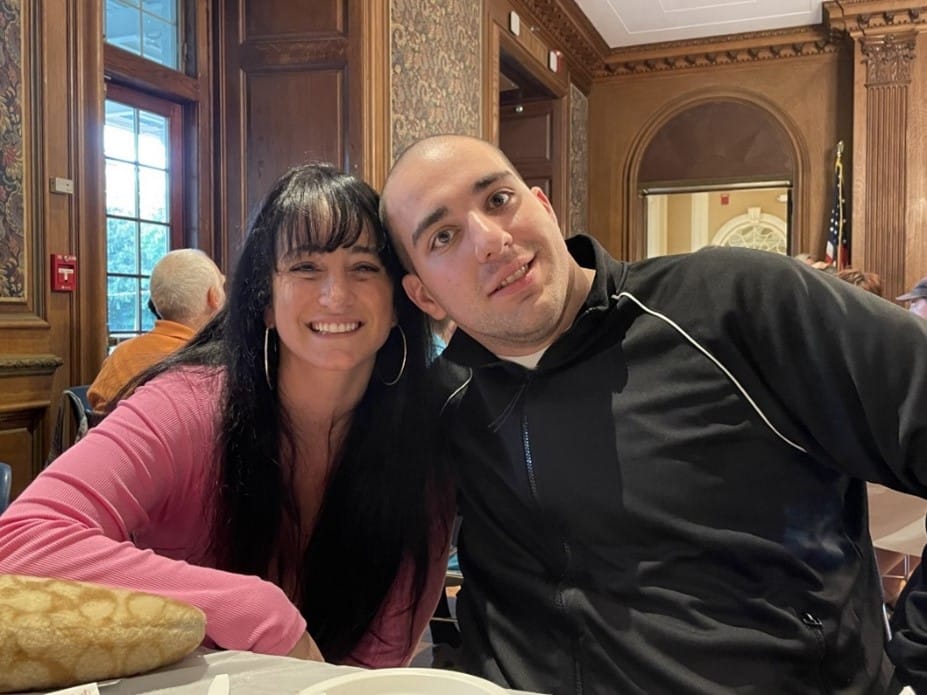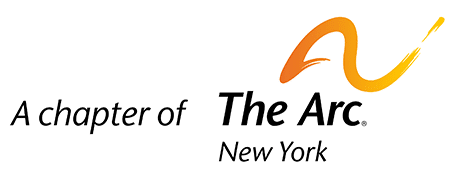Families and people supported by AHRC Nassau and Citizens Options Unlimited gathered for the Annual Sibling BBQ on May 25. The groups meet on average two to three times a year, with the next meeting set for September 28.
We sat down and spoke with Ali Carbone to reflect on what it means to be a sibling guardian and advocate for people with intellectual and developmental disabilities (IDD).

Meet Ali Carbone, 32, Secondary Guardian for Three Brothers With ASD
(Luke, 21; Anthony, 24; and Michael, 27)
Q: How do you show up as a sibling advocate and how has this role changed since you have grown up?
I’ve always kind of shown up in my own way, like a mix of wanting. . . or trying to be official, like a parent. It was always important for me to know the details. I think maybe that’s what made me feel like a part of it all. So, I’d pay attention to all the admin and the services. I wanted to be involved in advocating for those situations. I’ve definitely been known to write a strongly worded email. But then also as a sister, I’ve always just been really protective of them in public. Hence the name of my book, “What Are You Looking At?”
I try to think of it as things shifting rather than changing when they moved into the group home. That helps it feel less heavy. ‘Cause that’s life, right? Typical people grow and evolve and shift.
That’s what happened when they went into the group homes. I wasn’t with them every day anymore but my role was the same when they were home.
And if anything, the admin became more complicated, which kind of gave me an opportunity to fill that now empty space with something else to do. When the boys were all first transitioning into Citizens, I went with my parents to the meetings. I wanted to learn about all the financial stuff. There’s a lot to know.
Q: In what ways can sibling guardians work together? What resources do you wish were out there to support you?
This is the most important conversation to me, right now. I wish there was a reference for how I felt, growing up. Just something I could look and relate to, see myself in and have my feelings validated or even just made clear.
When I was younger, even if you offered me a support group or resource, I wouldn’t have wanted to go. It felt like another job. Another duty or part of being a sib. I didn’t want to talk about it. It didn’t matter if it was kids my age who went through the same. It was talked about enough in my life.
I think for the younger ones or ones who haven’t had to step into guardianship yet, the support we actually need is more internal and has to do with socially focused things. I think the issues most important to us are less logistical. I guess what I wish there was, was a reference. A tv show or a book or something that showed a kid like me, so I could see it, and not feel so isolated. And then maybe seeing that more, or those experiences being normalized can help some of those sibs who wouldn’t have reached out, feel more comfortable too on their own time. At the end of the day, all everyone wants for themselves is representation. That goes beyond our families’ situations.
Q: Your situation is unique since you do not have another neurotypical sibling to assist. You said you always felt like the third parent. How do you prevent burn-out?
Hmm. I don’t. Maybe that’s the answer. To just surrender and like. . . let go of the what-ifs or the fear. Which is so insane to say. . . as if it’s that simple.
It took a while for me to get here. I started therapy when I moved out of my parents’ house because that’s when I realized I had no idea who I was outside of my family. When I left, I felt empty and just melted down emotionally. Therapy kind of forced me to look at my life with me as the main character and not a support person, and that really helped me build all the things I didn’t have as a kid, because I was busy existing as a third parent.
It’s hard though, because you’re literally rewiring your brain and the way you developed. Going to therapy hasn’t changed my reality at all. I don’t necessarily feel different about the future. But I feel in control. Like I got this.
And I think that’s because I have this little advocate in MY corner that I talk to every week. Someone that’s just for me. Not my brothers. So maybe that’s another answer. Prevent burn out by finding someone that’s your advocate. Seriously. We can’t do this stuff alone physically, so why should we mentally? Have someone that reminds you of who you are, outside of being a sib.

